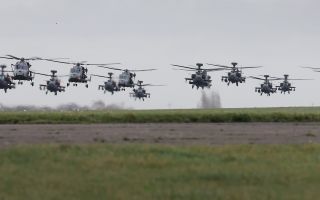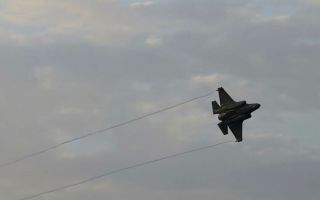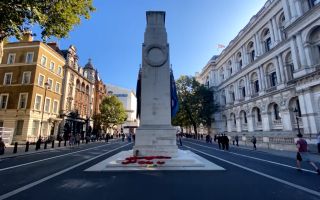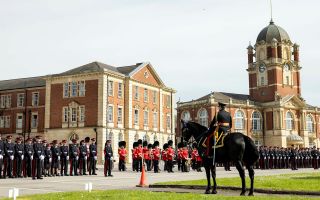Tri-Service
1983 NATO War Games Took World To The Brink Of Nuclear Disaster
Frightening new evidence that NATO war games put the world on the verge of nuclear disaster has emerged in former classified documents written at the height of the Cold War.
“In 1983, we may have inadvertently placed our relations with the Soviet Union on a hair trigger,” the review concluded.
Britain, the US and their allies grossly underestimated the seriousness of the situation during a period historians refer to as the "war scare".
Operation Able Archer, conducted in November 1983 by the US and its NATO allies, was so realistic it made the Russians believe that a nuclear strike on its territory was a real possibility.
A map that was used as part of NATO's 1983 nuclear release exercise Able Archer 83. The exercise included US planes engaging in 'nuclear warhead handling procedures'
Exercise Able Archer involved 40,000 US and NATO troops moving across western Europe, co-ordinated by encrypted communications systems.
It played out a scenario in which Blue Forces (NATO) defended its allies after Orange Forces (Warsaw Pact countries) sent troops into Yugoslavia following political unrest. The Orange Forces had quickly followed this up with invasions of Finland, Norway and eventually Greece.
As the conflict had intensified, a conventional war escalated into one involving chemical and nuclear weapons.
Numerous UK air bases, including Greenham Common, Brize Norton and Mildenhall, were used in the exercise, much of which is still shrouded in secrecy.
Today, decades after the collapse of the Soviet Union, times are tense.
President Putin put serious strain on diplomatic relations between Russia and the West with Moscow's annexation of Crimea alongside a destructive Syrian bombing campaign that has led to economic sanctions and widespread condemnation.
A phrase in the declassified report mirrors rhetoric heard today:
"Events are moving so fast that it would be unwise to assume that Soviet leaders will not in the future act, from misunderstanding or malevolence, in ways that puts the peace in jeopardy," the report states.
The review was publicised following a request from the National Security Archive, which is affiliated with George Washington University.









